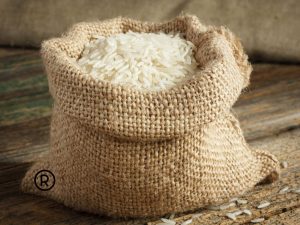 In the case of Trading Corporation of Pakistan Pvt. Ltd. v. Govt. of India Ministry of Commerce & Industry, Justice Prathiba M. Singh of the Delhi High Court passed an order on November 28, 2023. In the matter, Plaintiff 1, Trading Corporation of Pakistan Pvt. Ltd., Plaintiff 2, Rice Exporters Association of Pakistan, and Plaintiff 3, Basmati Growers Association, had sought an injunction against the defendant, i.e., the Government of India, Ministry of Commerce & Industry.
In the case of Trading Corporation of Pakistan Pvt. Ltd. v. Govt. of India Ministry of Commerce & Industry, Justice Prathiba M. Singh of the Delhi High Court passed an order on November 28, 2023. In the matter, Plaintiff 1, Trading Corporation of Pakistan Pvt. Ltd., Plaintiff 2, Rice Exporters Association of Pakistan, and Plaintiff 3, Basmati Growers Association, had sought an injunction against the defendant, i.e., the Government of India, Ministry of Commerce & Industry.
The injunction aimed to restrain the defendant from permitting the export of rice under the name ‘Super Basmati’ and from infringing on the Plaintiffs’ trade name, label, classification, brand or variety of ‘SUPER BASMATI.’ However, Justice Prathiba M. Singh dismissed the suit for non-prosecution as there was no appearance on behalf of the Plaintiffs, and the suit had not been effectively prosecuted since 2020.
In 2008, the plaintiffs initiated legal action challenging a Gazette Notification dated May 24, 2006, issued by the Department of Commerce, Government of India, permitting exports of evolved Basmati rice or any rice from India under the name/ variety/ tradename/ SUPER BASAMATI. The plaintiffs filed the suit seeking an order of permanent injunction directing the defendant not to give effect to the Gazette Notification. This Notification permitted the export of evolved Basmati rice or any rice from India under the name, variety, classification or trade name of ‘SUPER BASMATI’ and also to restrain the defendant, their partners, servants, agents, representatives, exporters from India and all those who acted in concert with them to take legislative, regulatory or administrative action in furtherance of this Notification and from using the name ‘SUPER BASMATI’ in relation to export of rice from India.
The plaintiff had submitted that the export of rice under the name of ‘SUPER BASMATI’ constitutes passing off of the Plaintiffs’ trans-border reputation of the ‘SUPER BASMATI’ name, label, quality, variety and classification of the evolved Basmati rice. The court had famed issues in 2014, and thereafter, the plaintiff’s evidence was also concluded. On behalf of the Defendants, one witness appeared in 2019; however, his cross-examination was not concluded. With effect from September 3, 2020, no one appeared on behalf of the plaintiff and discharge was sought by the plaintiff’s counsel in 2022.
The defendant further submitted that ‘Basmati’ had also been registered as a geographical indication (GI) under the provisions of the Geographical Indications of Goods (Registration and Protection) Act, 1999 in India, bearing application no. 145 which was granted on February 15, 2016. In addition, it was also stated by the defendant that as per the Notification dated September 18, 2017, issued by the Ministry of Agriculture, the seed production of all varieties of Basmati rice notified under Section 5 of the Seeds Act, 1966, is restricted to the GI registered rice growing areas of Delhi, Punjab, Haryana, parts of UP and state of Jammu & Kashmir.
Considering the nature of the case, the court dismissed the suit due to non-prosecution, stating that since there was no appearance on behalf of the plaintiffs and the suit had not been effectively prosecuted since 2020, and considering the defendant’s submissions, no further orders were necessary. All pending applications were also disposed of.
Authors: Manisha Singh and Malyashree Sridharan
First Published By: Lexology Here



